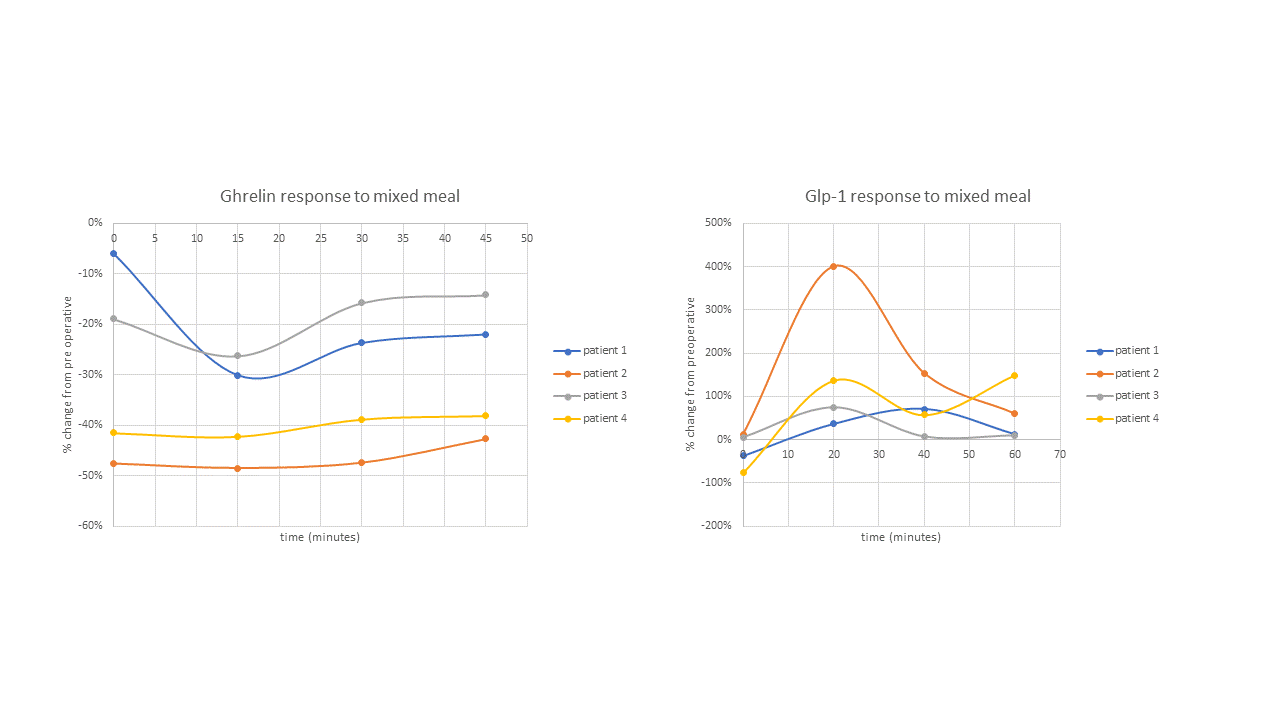Correlation of stomach morphology with gastrointestinal hormone response following laparoscopic sleeve gastrectomy
RICHARD A PERUGINI, *Kashayar M Rafatzand, *Laura Alonso, John K Kelly, Donald R Czerniach, Philip Cohen
UNIV OF MASS MEDICAL SCHOOL, WORCESTER, MA
Objective: The mechanism by which laparoscopic sleeve gastrectomy (LSG) induces weight loss is not understood. We hypothesize that LSG induces changes in gastrointestinal hormones involved in satiety (Glp-1) and hunger (ghrelin). Further, we hypothesize variations of stomach morphology post-LSG may lead to variable impact on these hormones.
Design: Pilot study
Setting: Bariatric Surgery program in a tertiary care setting
Patients: 4 patients (1 male, 3 female) cleared for LSG by a multidisciplinary team; age 31 + 9; BMI 44 + 3
Interventions: LSG
Main Outcome Measures: 1) Glp-1 levels and ghrelin levels in response to a mixed meal pre-LSG and 3 months post-LSG; 2) blinded descriptive assessments (e.g. size, shape, contractions) of stomach using dynamic MRI pre-LSG and 3 months post-LSG; 3) % excess BMI points lost (%EBMI)
Results: Ghrelin levels were significantly reduced following LSG, with a range of -19% to -47%. Peak postprandial Glp-1 levels were increased following LSG, with a range of 36% to 400%. There was considerable variation in these hormonal changes. We identified retained fundic pouches in the patients with more modest postoperative changes in ghrelin and in Glp-1. One of the two subjects with modest hormonal changes had significantly lower postoperative weight loss six months after LSG (21%EBMI vs 54-87%EBMI).
Conclusions: We confirmed the beneficial, but variable impact of LSG on postprandial Glp-1 and ghrelin levels. We have also identified retained fundic pouch as a possible cause of suboptimal hormonal impact. We believe further investigation can allow optimization of the technique of LSG. 
Back to 2019 Posters




